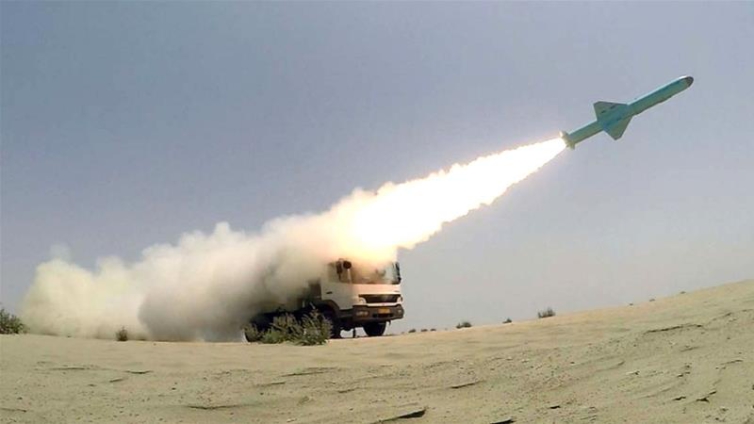
Audio By Carbonatix
United States President Donald Trump plans to issue an executive order allowing him to impose sanctions on anyone who violates a conventional arms embargo against Iran, four sources familiar with the matter said on Thursday.
The sources, who spoke to Reuters News Agency on condition of anonymity, said the executive order was expected to be issued in the coming days and would allow the president to punish violators with secondary sanctions, depriving them of access to the US market.
The White House did not immediately respond to a request for comment.
The order comes in advance of next month's expiry of a United Nations arms embargo on Iran and would be a warning to foreign actors - US entities are already barred from such trade - that if they buy or sell arms to Iran they will face US sanctions.
Under the 2015 nuclear deal that Iran struck with six major powers - the United Kingdom, China, France, Germany, Russia and the US - the UN conventional arms embargo is to set to expire on October 18.
The US, which abandoned that deal in May 2018, said it has triggered a "snap back," or resumption, of all UN sanctions on Iran, including the arms embargo, which would take effect at 8pm on Saturday night (00:00 GMT on Sunday).
Other parties to the nuclear deal and most of the UN Security Council have said they do not believe the US has the right to reimpose the UN sanctions and that the move has no legal effect.
"It is obvious that none of the Security Council members have accepted the eligibility of US claims," said Alireza Miryousefi, spokesman for Iran's mission to the United Nations, adding that the nuclear deal remains in place and all sanctions on Iran will be lifted in under the timelines agreed upon in 2015.
'Piling on'
Trump's executive order is intended to show that the US will not be deterred despite failing to win broader UN Security Council backing "snap back", said one of the four sources.
Another of the sources, a European diplomat, said the new executive order would put teeth behind Washington's assertion that the UN arms embargo would remain in place beyond October by giving the president secondary sanctions authority to punish arms transfers to or from Iran with US sanctions.
Secondary sanctions are those where one country seeks to punish a second country for trading with a third by barring access to its own market, a particularly powerful tool for the US because of the size of its economy.
Most foreign companies do not wish to risk being excluded from the vast US market in order to trade with smaller countries such as Iran.
The new executive order may be more symbolic than practical because so many Iranian entities and individuals are already subject to secondary sanctions, said one sanctions lawyer, Doug Jacobson.
"It's essentially piling on," Jacobson said. "It's designed to send a message on this particular issue ... that the US is unhappy that the other parties [to the Iran nuclear deal] did not agree to a snap back of arms sanctions."
Today, the U.S. sanctioned 47 Iranian individuals and entities involved in the Iranian regime’s global cyber threat network. We will continue to expose Iran’s nefarious behavior and we will never relent in protecting our homeland and allies from Iranian hackers.
— Secretary Pompeo (@SecPompeo) September 17, 2020
Speaking on Wednesday, US Special Representative for Venezuela and Iran, Elliott Abrams, said Washington planned to impose sanctions on those who violated the UN arms embargo, although he did not say it would do so with an executive order.
Also on Wednesday, US Secretary of State Mike Pompeo obliquely hinted at the upcoming action by stressing the power of US sanctions restored since it abandoned the Iran nuclear deal two years ago to deter foreign trade with Iran.
"We'll do all the things we need to do to ensure that those sanctions are enforced," Pompeo said of the UN arms embargo, recalling many experts argued US unilateral sanctions imposed after it abandoned the nuclear deal would fail.
"We've been very successful in spite of what the world said would happen," he added, saying US sanctions had drastically reduced Iran's financial resources.
Latest Stories
-
AU flatly rejects Somaliland bid, reaffirms Somalia’s unity
3 hours -
Mali rally to claim draw against AFCON host Morocco
4 hours -
Man City players ‘incredibly disciplined’ – Guardiola
4 hours -
How to get rid of unwanted Christmas presents – without being found out
4 hours -
Zelensky plans to meet Trump on Sunday for talks on ending Russian war
4 hours -
Thousands of US flights disrupted as winter storm looms
4 hours -
US judge blocks detention of British social media campaigner
4 hours -
Gun Amnesty: Greater Accra leads in weapons surrendered
5 hours -
Dave Bishop outlines vision as he seeks Ghana Boxing Federation executive board position
5 hours -
Former Ivory Coast coach Gasset dies
6 hours -
An Open Letter to the Deputy Attorney General, Dr Justice Srem-Sai
6 hours -
Humour at its finest at Kumasi Comedy Show
6 hours -
Police Christmas special operation: 101 suspects arrested in Greater Accra
7 hours -
15 arrested after sporadic shooting at Ho central mosque
7 hours -
GES condemns alleged theft of food supplies at Awaso STEM SHS
7 hours

